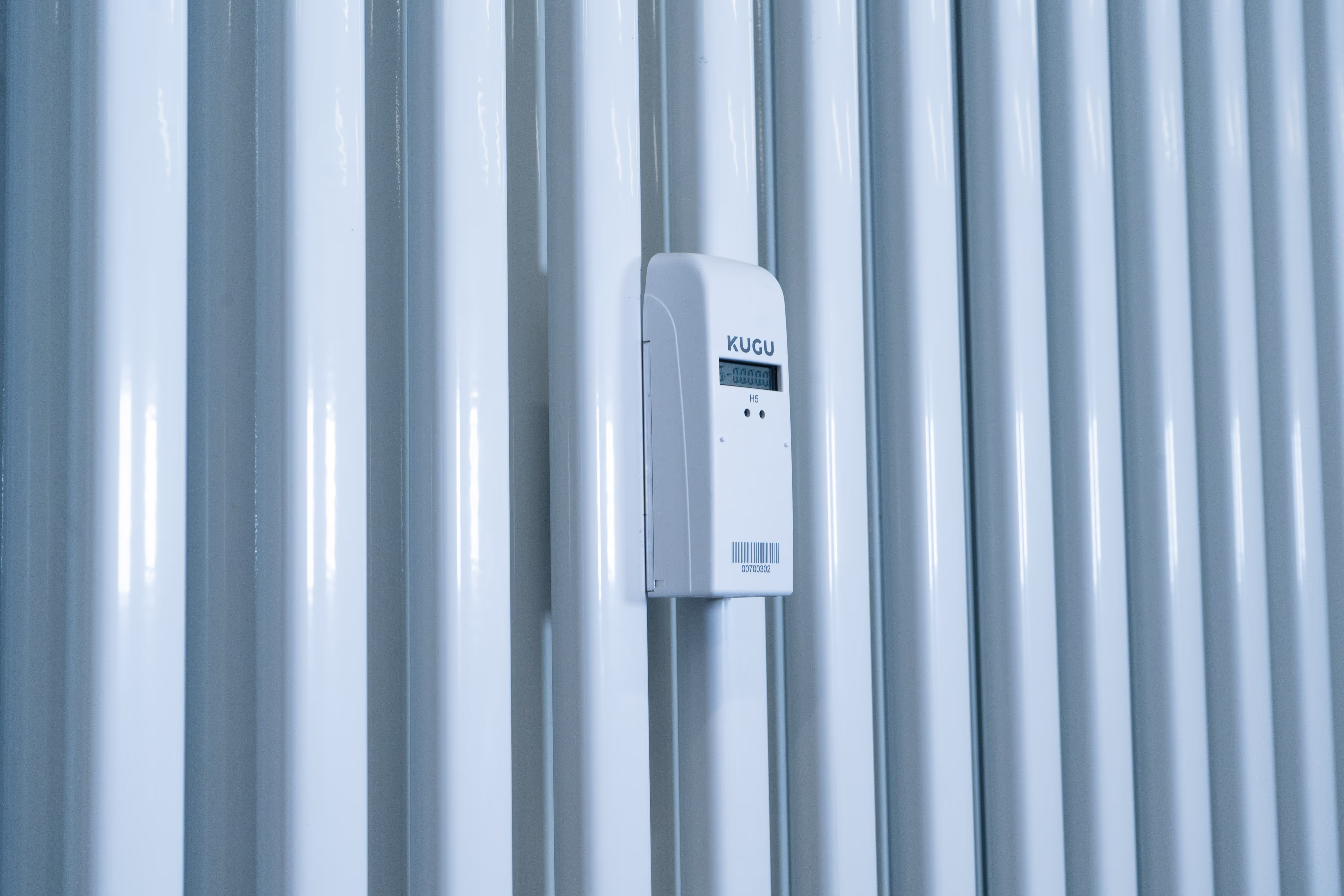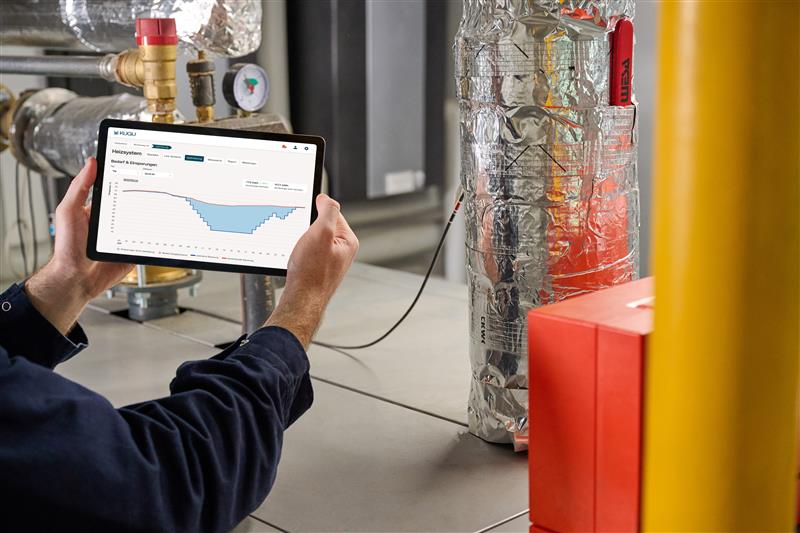Tenants or landlords or both - Who will pay the CO2 price in the future?

The dispute over the cost allocation of the CO2 price is becoming an election campaign debate and poses many questions for the housing industry. But regardless of who assumes the costs, all parties must be involved to achieve the climate goals.
The 2020 climate balance has shown that, among all areas, only the building sector has not achieved its climate goals. His influence on a climate-neutral Germany in particular is of enormous importance. Just under 20% of all CO2 emissions are still caused by heating in buildings; every fourth heating system is 25 years or older.
In order to achieve the climate goals set by the government, there has been a CO2 price on fuel, gas and heating oil emissions since the beginning of the year. 25 euros are charged per ton of CO2 emissions. For an apartment of 140 square meters, this means around 165 euros in costs per year. The law was introduced with the resolution that this amount is borne by the tenant. However, the debate as to whether the landlord should be involved in the costs has also existed for just as long.
UPDATE - July 15, 2021: How the parties want to distribute income through the CO2 price. A look at the election programs for the Bundestag elections
It has been clear for a few weeks now: The tenant alone bears the costs of the CO2 price. At least this year. It is still unclear how the future federal government will decide on the distribution of costs and whether the landlord will also be asked to pay as early as next year. EU Chancellor candidate Armin Laschet is certain that landlords must also assume costs in a timely manner. According to the CDU/CSU, the fact that this is not yet happening this year is primarily due to the fact that no fair distribution system has been found in the short time available.
But what actually happens to the income from the CO2 price, which is already in the billions this year? A look at the election programs shows that the parties have very different views here.
CDU/CSU: The Union Group invokes a uniform CO2 price across Europe. For the time being, there is nothing to read about the landlord's participation in the CO2 price. However, the focus is on expanding emissions trading in the aviation, mobility and heating sectors. The income from emissions trading should be returned in full to citizens and the EEG surcharge should be abolished immediately in this context.
SPD: The opposition sees the CO2 price in particular as an incentive for landlords to modernize heating systems and install energy-efficient systems. They therefore see it as inevitable that the landlord will contribute to the costs. The SPD also wants to abolish the EEG surcharge and cap the resulting costs for the federal budget with income from the CO2 price. In order to avoid social inequities associated with the CO2 price, compensatory measures should be examined. Taxing large digital corporations and a CO2 tax are also being considered.
Grüne: According to the Greens, the CO2 price of 25 EUR per ton of CO2 emitted is set far too low. They are calling for an increase to 60 EUR per ton of emissions by 2023. If the climate goals are to be solved through the CO2 price alone, social imbalances are unstoppable, according to the Greens. Sustainability should not be an issue of social status. Accordingly, the Green Party is also striving to repay all income from the CO2 price to citizens in full. In the form of so-called “energy money”, repayments should be made transparently per capita. Low-income earners in particular benefit from sustainable, climate-friendly behavior.
FDP: With regard to cost distribution and social justice, the FDP does not comment in its election program, but stresses that the cost survey for emissions is correct, should start in Germany and is only completed when there is a uniform, market-based CO2 price worldwide. Overall, however, they want to significantly reduce energy taxation and abolish the EEG surcharge. There is also a climate dividend, an annual, lump sum contribution for all citizens.
Die Linke: There is little or nothing to read about the CO2 price in the left's election program. They are critical of emissions trading, as it does not contribute to climate protection. They are in favour of a reform of emissions trading at EU level so that any misuse of trade can be ruled out.
AfD: Only in the Alternative for Germany election program is there even less about the CO2 price. The AfD is of the opinion that any form of CO2 price should be abolished again.
UPDATE - June 23, 2021: The decision for 2021 has been made
While in May the opposition still seemed to win the approval of the Union parliamentary group to share the costs of the CO2 price, all efforts have failed for the time being. The CDU/CSU parliamentary group has finally spoken out against landlords sharing the costs for 2021. The corresponding passage in the immediate climate protection programme has been deleted. Once again, they emphasize that tenants only change their use of resources if they alone bear the costs. And that is the ultimate goal of the CO2 price: to “guide tenants' behavior.”
To ensure that low-income households in particular are not burdened by the CO2 price, there has been 10% more support for everyone eligible for housing benefits since January anyway. The SPD and the Greens are nevertheless disappointed by the decision. They imagine “social climate protection” differently. Although an extra payment is important, it is far from sufficient to fully cover the new costs incurred. Environmental associations and tenant associations are also angry and support the opposition's arguments.
Which climate protection measures are implemented and how is ultimately the task of the upcoming federal government. It is certain that Germany should have achieved greenhouse gas neutrality by 2045. Five years earlier than originally planned, we aimed for a state in which we only emit as much CO2 as we could neutralize. An important goal for which tenants and landlords must contribute jointly and independently of the CO2 price. Through resource-saving use of heating fuels, energy-efficient systems, monitoring of technology and digitalized, sustainable processes.
UPDATE - June 2, 2021: The parties are still divided on the involvement of landlords
The climate pact in mid-May manifested the idea that tenants and landlords would pay equally for the CO2 price. In order for this regulation to be passed as law in June and come into force on 1.1.2022, ministries and the coalition initially agreed on it. Shortly before today's Federal Cabinet meeting, however, the agreement reached by the Union parliamentary group overturns and clarifies the extent to which the issue of CO2 prices is already an issue of the election campaign.
In order to relieve the tenant, the SPD and the Greens expressly support the sharing of the CO2 price. They emphasize that the tenant has no influence on the energy status of the residential building. However, it only bears the costs if old heating systems run inefficiently and cause high CO2 emissions. On the other hand, the Union parliamentary group of CDU and CSU argues that landlords should not pay for possible wasteful consumption by tenants because this reduces the incentive to reduce heating costs.
Benefits for climate protection and implementation of cost sharing in practice are unclear
The uncertainty in the government is the result of numerous unresolved issues. To what extent does dividing the CO2 price really contribute to the goal of climate protection? If the landlord shares the costs, are tenants less eager to save on heating costs? If the law is passed, do landlords prefer singles rather than families because they cause lower CO2 emissions? And how is cost sharing implemented in practice?
Regardless of who pays the costs at the end of the day, the energy revolution will only succeed if both tenants and landlords actively invest in climate protection. A key driver for this is the digitization and utilization of energy data. If tenants and landlords can access energy consumption in real time and independently of a third-party provider, there is increased transparency in consumption and the associated individual CO2 emissions, which in turn encourages costs to be saved. The landlord through an efficient heating system, the tenant through a resource-saving approach to heating.
Digitalization and transparency in handling energy data reduce CO2 emissions
Partners such as KUGU provide such insight into their own energy data. KUGU is a modular SaaS solution for independent energy management of buildings. By combining submetering and metering, real estate and energy companies can manage their energy data completely independently via a portal, check the efficiency of their systems, create operating cost statements and thus make themselves independent of measurement service providers. A connected resident app also gives tenants insight into their own consumption and can optimize their behavior accordingly. Because even though many questions regarding the CO2 price remain unresolved, it is certain that all parties must take action to protect the climate.
Do you have any questions about the CO2 price or would you like to gain more insight into your energy data? We are looking forward to hearing from you!
Christopher von Gumppenberg //Managing Director// c.gumppenberg@kugu-home.com
sources:
5) https://www.tagesschau.de/inland/mieter-co2-preis-101.html
8) https://www.ccl-d.org/documents/2/Wahlpr%C3%BCfsteine_BTW21_b.pdf







